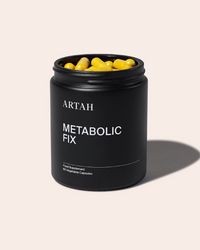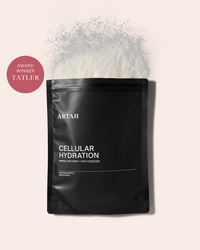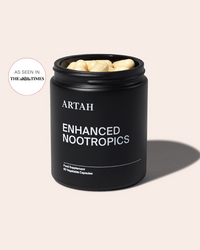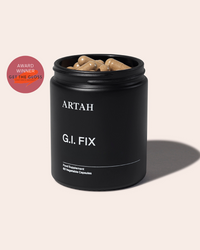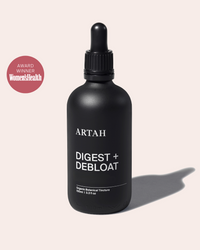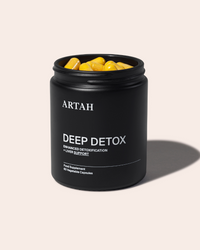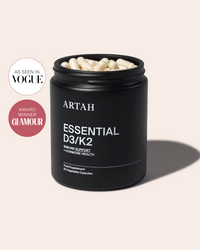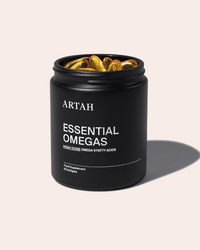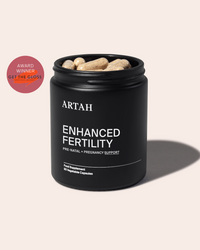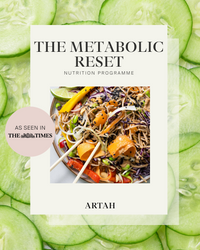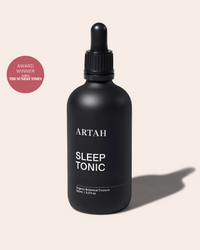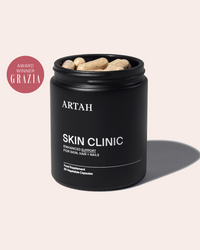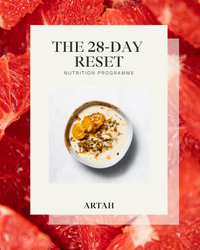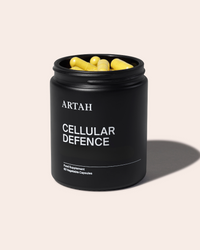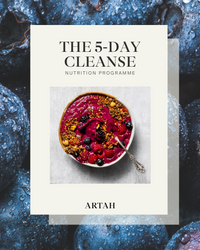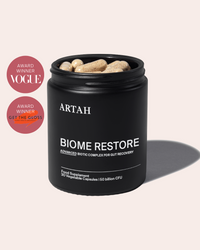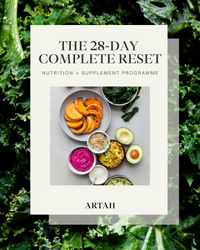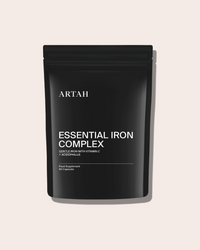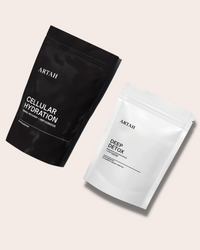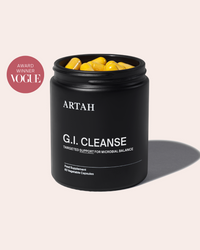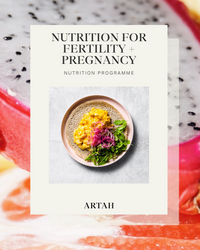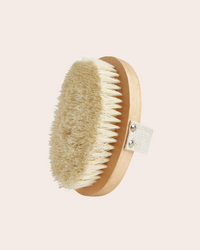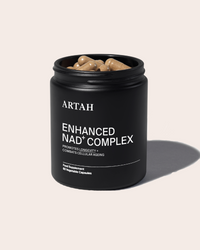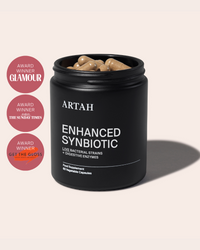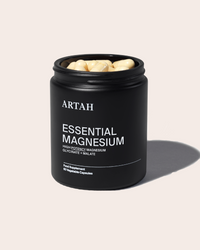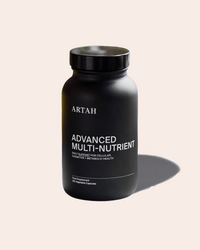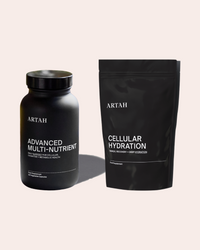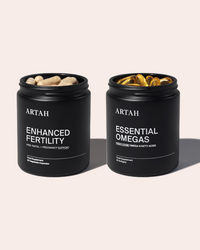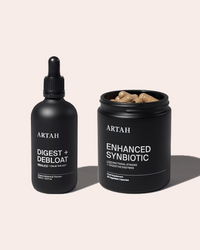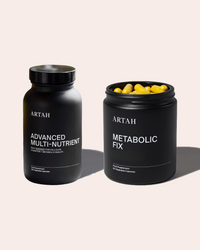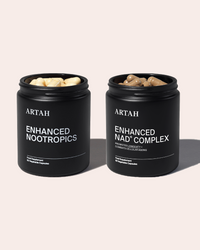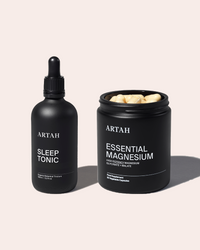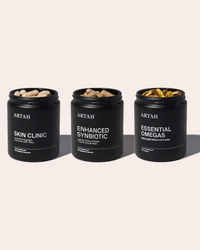The Gut - Fertility Connection: Part 1
Gut health is intricately linked to hormone balance and as such, has a significant role in fertility. This week, we’re talking about the estrobolome and how it can impact fertility.
Before we jump into this topic, it’s important to do quick recap of the basics. Our microbiome is a complex ecosystem of microorganisms which influences the production and metabolism of hormones, and hormones are chemical messengers that regulate a wide range of bodily functions like metabolism, immune function, and reproductive health. Think of them like the body’s internal communication system, which is continuously working to coordinate complex processes like ovulation and menstruation. In females, there are a variety of hormones that work as team to regulate the menstrual cycle but oestrogen and progesterone are the major players. Throughout the month, oestrogen levels rise and fall, stimulating the growth and maturation of the uterine lining to prepare for implantation of a potential pregnancy. Oestrogen also helps to thicken cervical mucus, making it easier for sperm to reach the egg, and plays a role in ovulation, helping to trigger ovulation. Whilst oestrogen is produced by the ovaries, its metabolism is heavily influenced by the health of our gut.
Oestrogen – use it and lose it.
Like many hormones, when it comes to oestrogen we want to use it and lose it. In other words, we don’t want high levels of oestrogen hanging around all month when other hormones should be dominant. Once it's worked its magic, it should be metabolised by the liver and then eliminated from our body via the gut, and the health of the microbiome to this process.
This is because the microbiome contains different bacteria that influence the metabolism of oestrogen (referred to collectively as the estrobolome) primarily through the production of an enzyme called beta-glucuronidase. The liver's job is to prep oestrogen for elimination through a process called conjugation, which gets it into less active forms to be excreted through the gut. If it gets to the gut and we have excess beta-glucuronidase activity, it will deconjugate oestrogens; essentially reactivated them into their biologically active forms. These oestrogens can then be reabsorbed and recirculated throughout the system instead of being eliminated. When beta-glucuronidase is in balance, we don’t need to worry about this, however, when dysbiosis occurs, beta-glucuronidase levels can be altered. Too much or too little of this enzyme can disrupt the delicate balance of circulating oestrogens, which can contribute to metabolic syndrome, endometriosis, fibroids, irregular ovulation, and challenges with fertility.
What can disrupt the estrobolome?
The factors that negatively affect the estrobolome are pretty much the same as those that impact overall gut health.
-
Excess sugar and processed foods
-
Excess alcohol
-
Frequent antibiotic use and certain OTC medications
-
Diets high in red meat and saturated fat
-
Chronic stress
-
Certain medical conditions, like IBD and coeliac’s disease
-
Excess exposure to (or reduced detoxification of) pesticides and heavy metals
-
Lack of plant diversity in the diet (leading to lack of microbial diversity in the gut)
What can help?
When it comes to tackling gut health for overall hormone balance, take an integrated approach with food, probiotics, and stress reduction.
-
Up your cruciferous vegetables: Broccoli, cauliflower, Brussels sprouts, and kale are rich in sulphur rich compounds that support oestrogen metabolism.
-
Flaxseeds: Flaxseeds contain lignans, which are phytoestrogens that can help regulate estrogen levels, and are also a rich source of fibre, which is essential for keeping the bowel moving (a key step in eliminating oestrogens).
-
Citrus fruits: Citrus fruits like oranges, lemons, and grapefruits contain limonene in their peels, a compound that has been shown to help with oestrogen metabolism. Try adding grated peel to teas, salad dressings, or as toppings to dishes to help increase your intake. Alternatively, if you’re an avid juicer (and are buying organic, unwaxed citrus), you can juice the whole fruit – peel included.
-
Dark coloured vegetables and berries: Dark fruit and veg are rich in flavonoid polyphenols, phytochemicals that nourish the good guys in the microbiome and help promote microbial diversity.
-
Fermented foods: Look for high quality (live or unpasteurised) kefir, kimchi, sauerkraut, and wild pickles to help increase microbial diversity in the gut.
-
Probiotics: Certain strains in particular have been shown to positively influence hormone balance, including Lactobacillus acidophilus, Lactobacillus plantarum, Lactobacillus gasseri, and Bifidobacterium bifidum. These strains can be found in our Enhanced Probiotic.
-
Keep your bowel moving: Healthy bowel movements are critical for keeping toxins, oestrogens, and other metabolites out of circulation, so addressing constipation or sluggish bowel movements can have a significant impact on overall hormone health. Consider G.I. Fix to promote motility and stool bulk if regular bowel movements are a problem for you.
-
Stress reduction: Chronic stress can negatively impact gut health and disrupt the balance of the microbiome, which can lead to an overgrowth of harmful bacteria and tilt the scales when it comes to beta-glucuronidase. Stress reduction is very personal, and it may take time to figure out the method you’ll respond to most, but some of our favourites include breath-work, yin yoga, walking, and meditation.
This article is for educational purposes only and the implementation of the theories and practices discussed is at the sole discretion of the individual. All advice given is not a substitute for medical advice, diagnosis, or treatment. If you have any concerns about your health, you should speak with your physician.






